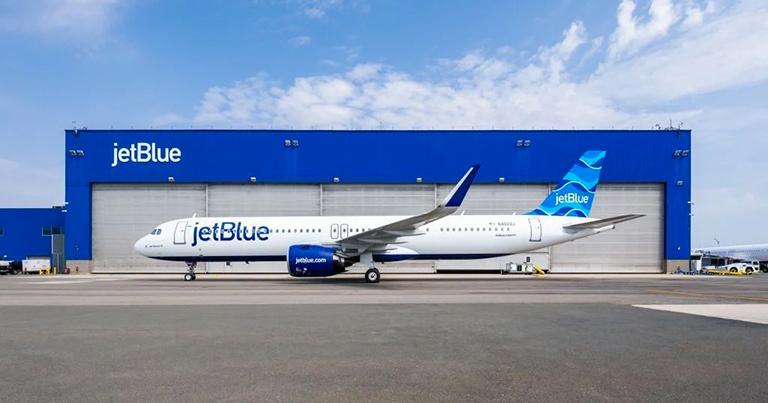Historic Milestone: Fully Electric Small Aircraft Completes Flight from East Hampton to JFK

History was made on Tuesday as the first fully electric aircraft, BETA Technologies' ALIA CTOL, successfully completed a flight from East Hampton Airport to John F. Kennedy International Airport, marking its arrival at a major New York City area airport. The plane, carrying four passengers and piloted by BETA CEO Kyle Clark, took off around 10:24 a.m. after turning on with a distinct buzz and gliding down the runway, and landed at JFK approximately 45 minutes later. The Port Authority of New York and New Jersey hailed this event as a "historic first," signifying a potential turning point for the future of aviation and the first all-electric flight to land at one of the region's three major airports.
Port Authority Executive Director Rick Cotton stated that this milestone flight aligns directly with the agency's ambitious agenda for a more sustainable future and its commitment to achieving net-zero emissions across all operations by 2050. The demonstration of the ALIA CTOL, an advanced air mobility aircraft, showcases technology that could significantly improve air quality, reduce noise pollution, and offer flights with no operational emissions. Officials believe this development brings emission-free flights one step closer to the general public.
The ALIA CTOL is a product of Vermont-based BETA Technologies, which has dedicated six years to its testing and development. The company, having raised $1 billion from investors like Amazon and Fidelity Investments, was selected by the Port Authority to demonstrate a "next-generation aircraft." The sleek, fixed-wing electric airplane, which takes off and lands conventionally, is equipped with an electric motor that can be charged in under an hour. While this was its first flight with passengers, the ALIA CTOL previously completed an 8,000 nautical mile journey across the United States, from Plattsburgh, N.Y., to Los Angeles, Calif., and back. Kyle Clark emphasized that navigating the busy New York City airspace alongside commercial traffic with passengers demonstrates the aircraft is ready for its final certification steps.
A significant advantage of such electric aircraft is their operational cost. The flight from East Hampton to Queens cost a mere $8.00 in electricity, a stark contrast to the estimated $350 in fuel required for a conventional plane of similar size. Rob Wiesenthal, founder and CEO of Blade Air Mobility and one of the passengers, highlighted the long-term economic benefits. "In the long run, it's going to be less costly to operate because they have less moving parts. It will be more affordable to the consumer," he commented. While the electric plane is quieter than standard gas-powered aircraft, particularly inside the cabin, noise from the propeller is still present.
BETA Technologies anticipates it will take another 18 months for the ALIA CTOL to complete testing and receive full clearance from the Federal Aviation Administration (FAA). The recent flight was conducted under an FAA marketing survey certificate. Wiesenthal also noted the broader implications, suggesting that "when you have quiet and emission free aircraft, it unlocks the opportunity for more landing zones that are more convenient to people all over the country." This is particularly relevant given the long-standing concerns over summer air traffic noise at the East Hampton Town Airport, where town officials have unsuccessfully attempted to shut it down. Notably, town board members were invited but not present at the demonstration.
Looking ahead, the advent of electric aircraft necessitates infrastructural adaptations. James Brundige, director of East Hampton Airport, who witnessed the takeoff, remarked, "Electric airplanes are the wave of the future. As the batteries get more efficient and are able to carry heavier weights at longer distances, airports will have to think about infrastructure to support it." This pioneering flight underscores the accelerating pace of innovation in sustainable aviation.











